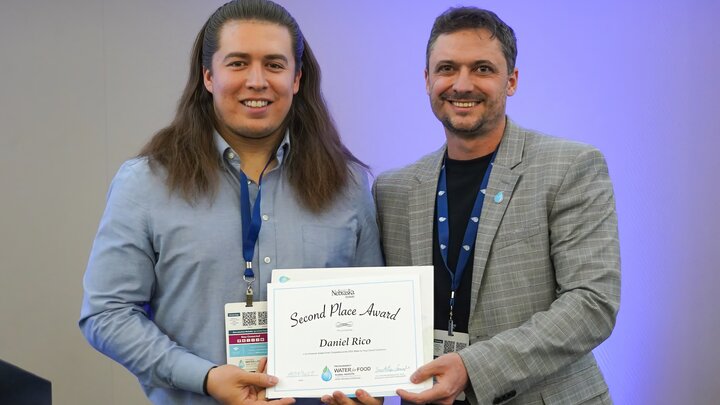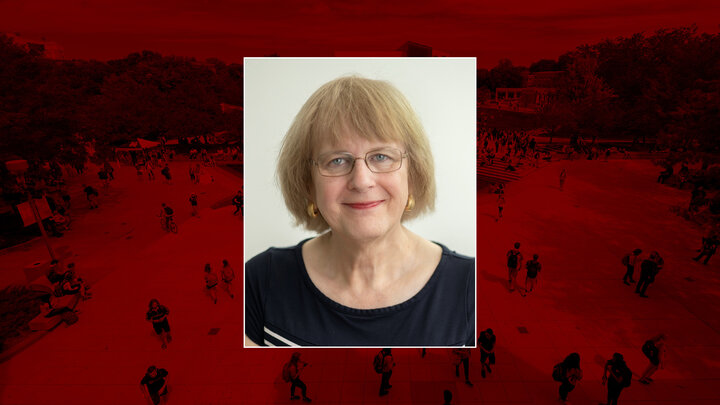School of Computing graduate research assistant Daniel Rico was the second-place winner of the Daugherty Water for Food Global Institute-supported student poster competition at the 2025 Water for Food Global Conference.
The Water for Food Global Conference brings together experts from around the world to discuss advances in science, technology and policy to help address one of the most urgent challenges of the 21st century: how to achieve greater food security with less pressure on scarce water resources. This year’s conference, with the theme of “A Resilient Future: Water and Food for All,” took place April 28–May 2 at Nebraska Innovation Campus.
Rico’s project, “Toward a Redistributable TetherBot Network for High-Altitude Power-Tether SUAS-based Agroecosystem Sampling,” explores the concept that while carbon sequestration in agroecosystems will play a crucial role in mitigating climate change, the complex interactions between soil organic carbon (SOC) and gaseous carbon (CO2 and CH4) in the lower 100 meters of the atmosphere remain poorly understood. Existing measurement platforms, including eddy covariance (EC) towers and satellite remote sensing, are limited in capturing fine-scale vertical and temporal gradients of carbon exchange. To address this gap, Rico developed and deployed a swarm-based tethered robotic system, integrating the Tethered Aircraft Unmanned System (TAUS) with a network of mechanized sensor suites, termed TetherBots. These autonomous, two-degree-of-freedom agents traverse the power tether dynamically, redistributing to track localized meteorological and carbon-based variables.
Rico has a B.S. in Electrical Engineering, an M.S. in Computer Engineering, and is currently a Computer Science Ph.D. student in the School of Computing advised by Dr. Justin M. Bradley, Dr. Carrick J. Detweiler of the School of Computing, and Dr. Francisco Munoz-Arriola of the School of Natural Resources. He is currently a member of the Nebraska Intelligent MoBile Unmanned Systems (NIMBUS) Lab and the Climate Analytics, Analysis, and Synthesis for Action (CAASA) Research Collective.
Rico’s work is also directly related to a U.S. Department of Agriculture’s (USDA) National Institute of Food and Agriculture grant, focused on unlocking the potential of carbon sequestration, an approach to fighting climate change that compensates farmers for leaving land untilled. As part of a multifaceted team, they are currently working to quantify how much carbon is actually stored in the soil. They will use the TAUS, with its sensors placed along the tether, to measure the volume of air over the field, including measurements of temperature, carbon dioxide, wind, and other atmospheric traits. The team will then develop a smart sampling strategy that pinpoints the locations that will yield the data most critical to monitoring, reporting, and verification (MRV), which is key to scaling up the process and minimizing unnecessary work. These algorithms will then be incorporated into a widely used USDA software tool.




